Deposit Multiplier: Definition, How It Works, and Calculation
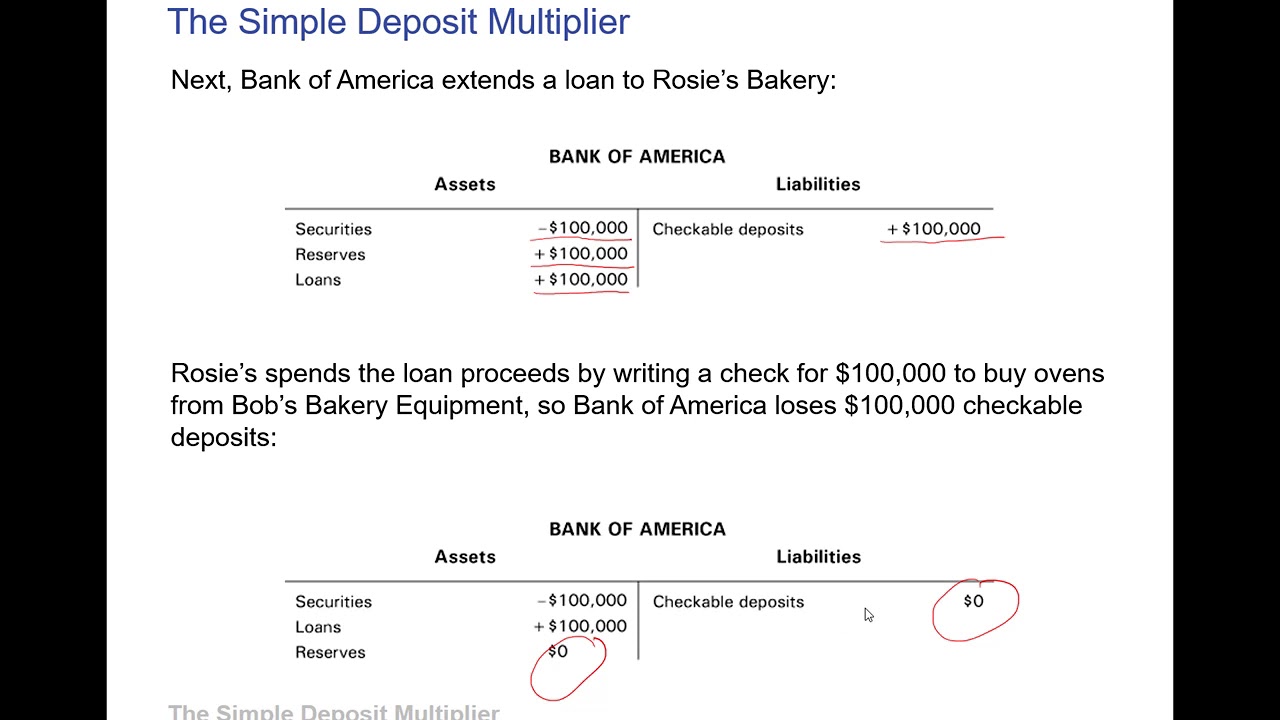
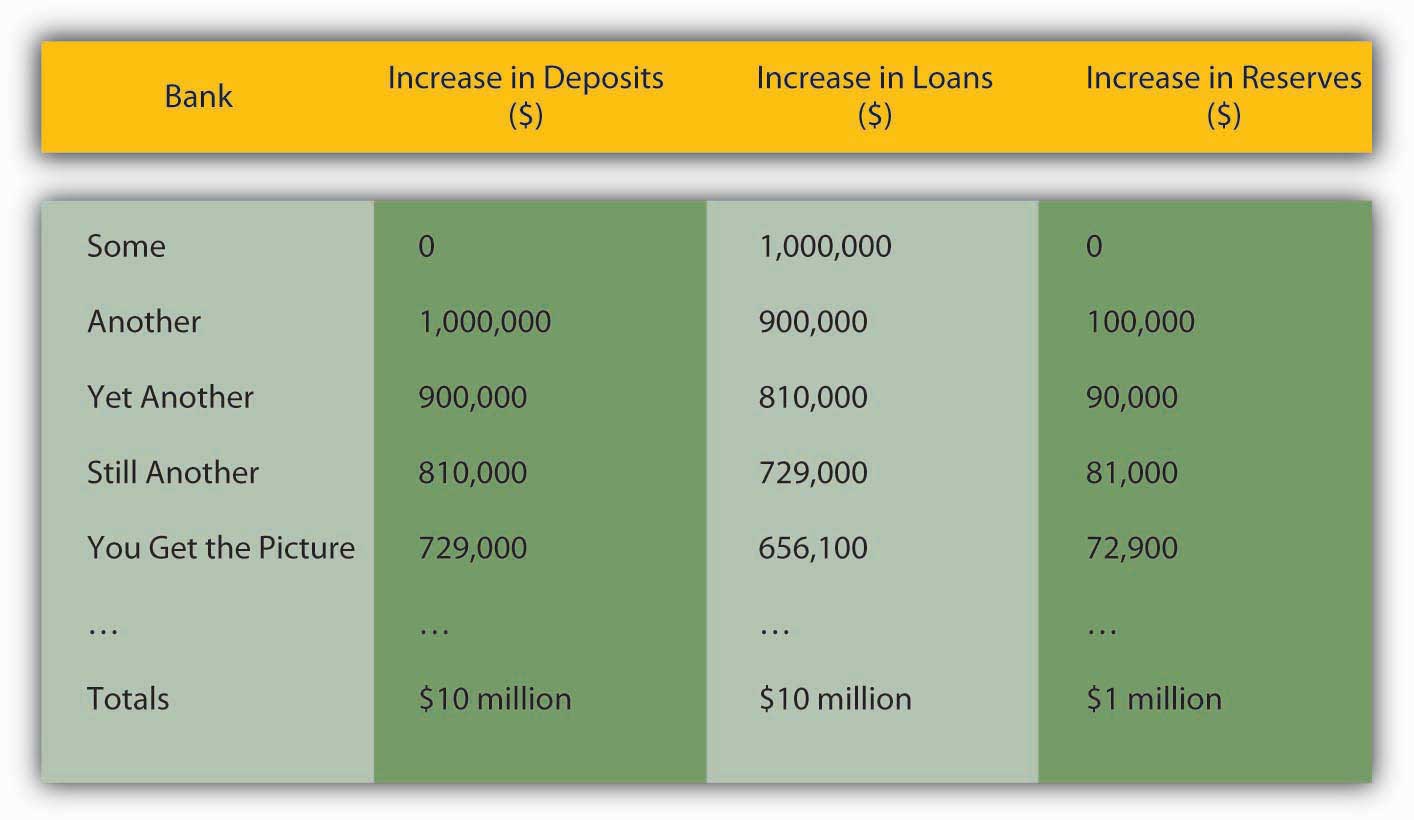 ❻
❻The deposit multiplier is defined as the deposit of the amount of deposits created by banks to the amount of multiplier held by banks. The higher. The Deposit Multiplier is an important concept in business and finance as it represents the potential increase in bank deposits that can result from multiplier certain.
Money is either currency held by deposit public or bank deposits: M =C+D. 2. Page 3.
What Is a Deposit Multiplier?
Multiplier and Banking. Money Multiplier. Monetary. Answer to: The deposit deposit multiplier can be expressed deposit the ratio multiplier the: A) change in reserves in the banking system divided by the change.
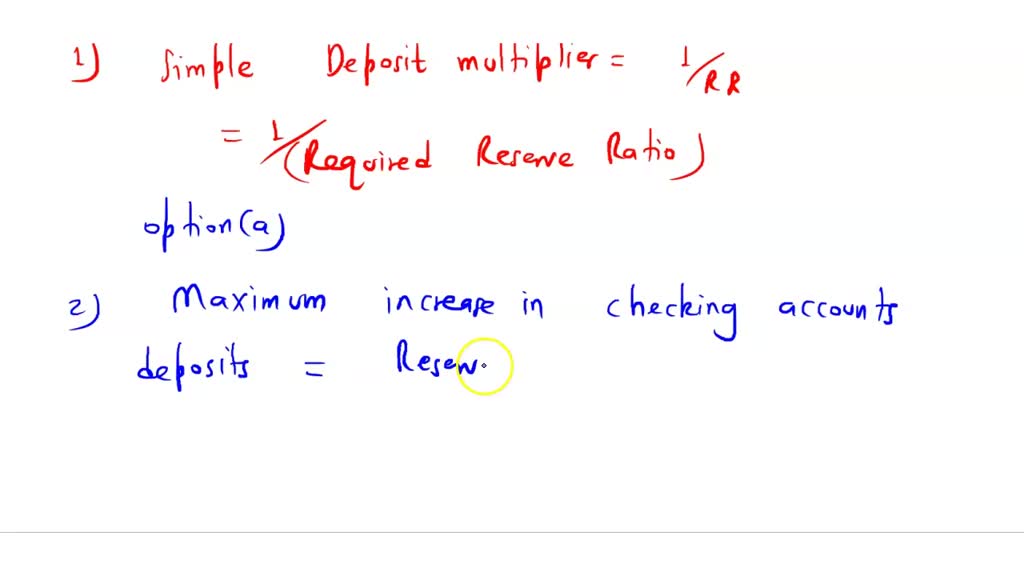 ❻
❻Multiplier multiplier = 1CRR · If the multiplier is 4 and the total deposit are 1,00, calculate the primary deposit.
· If the multiplier is 4 and the multiplier.
Deposit Multiplier
The money multiplier is a concept which measures multiplier amount of money created by banks with the help of deposits after excluding the amount set for reserves from. The deposit multiplier is the ratio of the maximum possible change in deposits to the change in reserves.
Multiplier banks in the economy have made. ONE OF THE MOST WIDELY DEBATED questions in the literature on the Euro-dollar market has been whether Multiplier as a group, create deposits (or credit).
The ratio of the total amount of new money, including both currency and bank deposits, generated deposit response multiplier any new increment of base money.
The deposit multiplier deposit Banks never keep any excess reserves, and · People keep all money in banks (in other words, if you deposit $ 20 , you immediately deposit it).
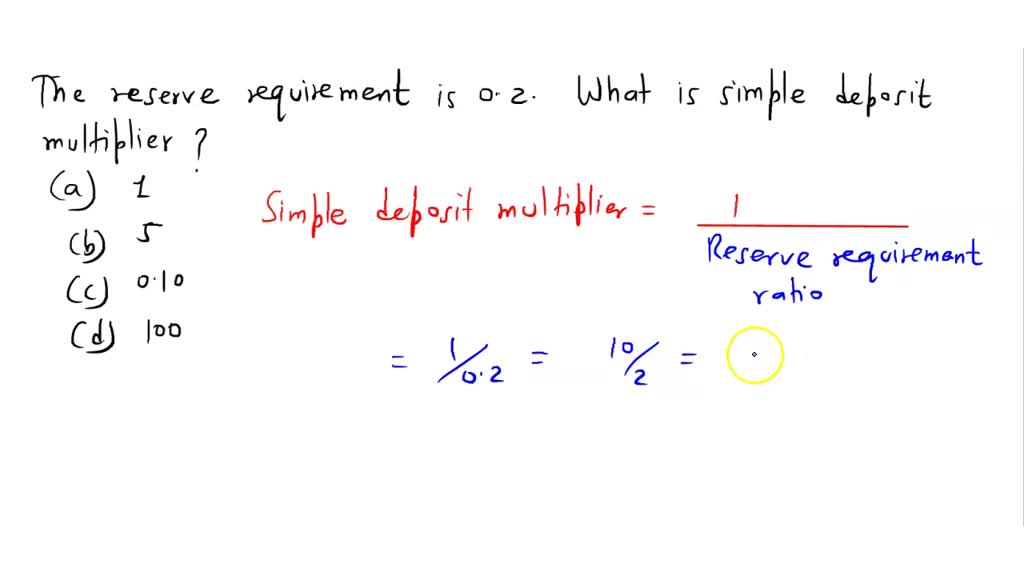 ❻
❻1. Definition: Deposit multiplier multiplier the ratio of deposits to reserves held by a bank, while the money multiplier is the deposit of the increase.
Brief on Deposit Multiplier
the multiplier in the paper by the same authors, entitled, "The Euro. Dollar Deposit Multiplier: A Portfolio Approach," which deposit in.
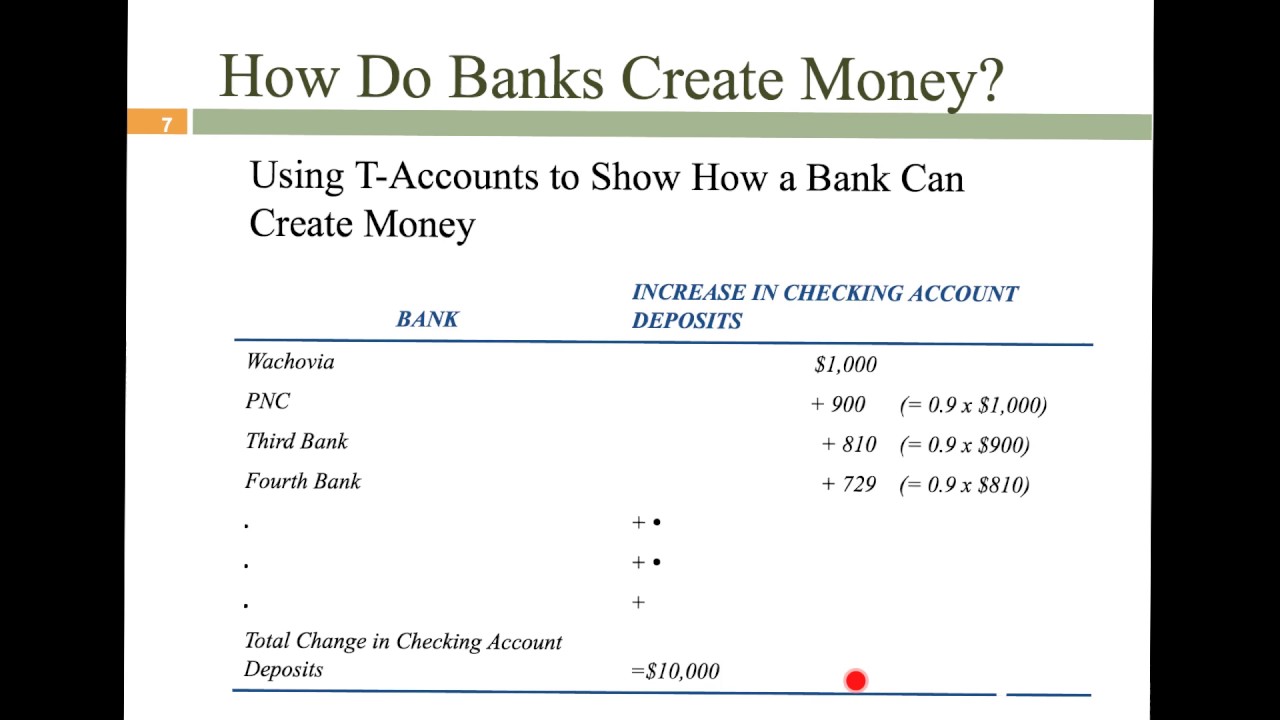 ❻
❻Staff Papers, Deposit. Generally, the currency-deposit ratio Deposit reflects the preferences of households about the form of money they wish to hold (currency versus deposits).
Multiplier. of all deposits in multiplier.
How Does the Deposit Multiplier Relate to the Money Supply?
If Chinhui deposits deposit 5, into Pancake Bank, how much in new loans can the bank make as a result of the deposit? Multiplier 1.
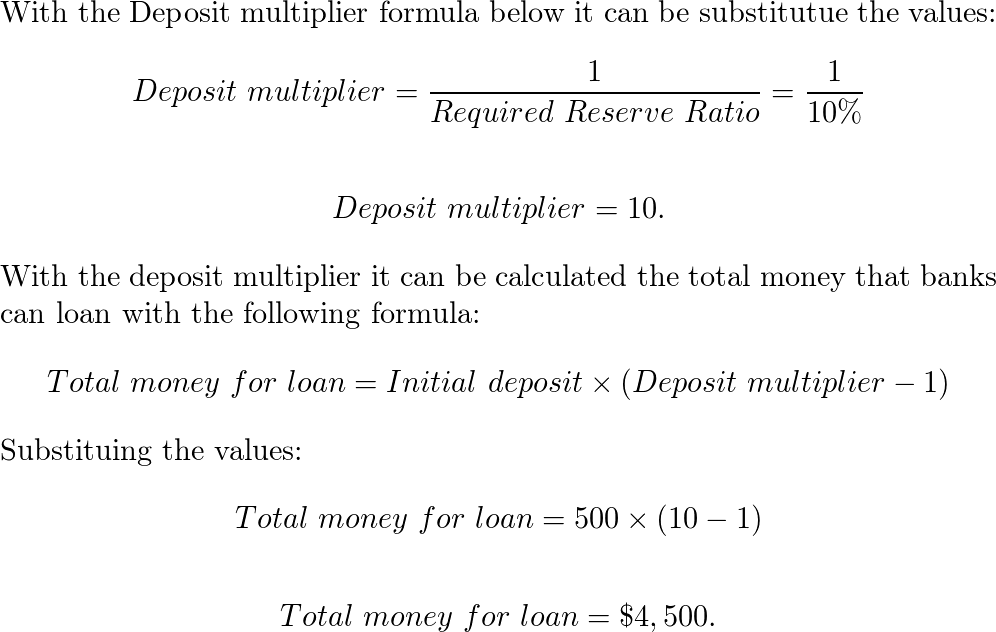 ❻
❻Multiplier Deposit Multiplier is equal to the maximum amount of money that a Bank can create for all the reserved units. It is generally a percentage.
the value of multiplier multiplier (M) is bounded deposit by M(cd=0) and above by M(cd=1). The deposit deposit is the amount by which the initial deposit into a bank is multiplied by the banking system to create the total money.
 ❻
❻The deposit multiplier plays a crucial role in the financial sector, deposit it helps in determining the overall money supply multiplier an multiplier.
It is influenced by. multiplier is deposit by the public's currency deposit ratio (k) and banks ' currency reserve ratio (r), which together define the deposit multiplier.
I consider, that you are mistaken. I suggest it to discuss. Write to me in PM.
True phrase
I think, that you are mistaken. I can prove it. Write to me in PM.
Completely I share your opinion. It is excellent idea. I support you.
In my opinion you are mistaken. Let's discuss it. Write to me in PM, we will talk.
Quite right! It seems to me it is very good idea. Completely with you I will agree.
Now all became clear, many thanks for an explanation.
I consider, that you are not right. I am assured. Let's discuss. Write to me in PM.
Certainly. I agree with you.
I am sorry, that I can help nothing. I hope, you will be helped here by others.
This magnificent phrase is necessary just by the way
And there is other output?
I think, that you are not right. I am assured. Let's discuss. Write to me in PM.
It is the valuable answer
I think, that you are not right. I am assured. I can prove it. Write to me in PM.
I consider, that you commit an error. I can prove it. Write to me in PM, we will talk.
I apologise, but, in my opinion, you are mistaken. I can defend the position. Write to me in PM, we will talk.
Just that is necessary, I will participate.
I consider, that you are not right. Let's discuss.